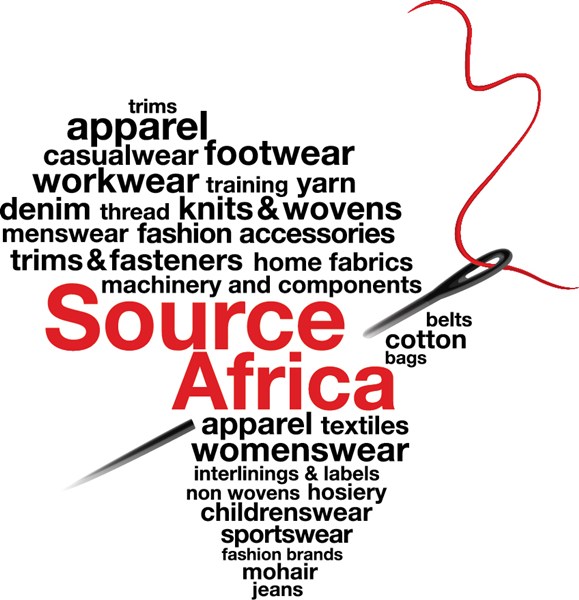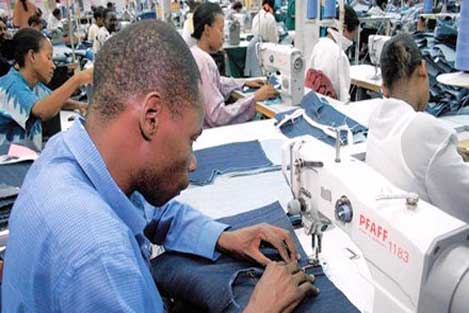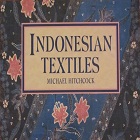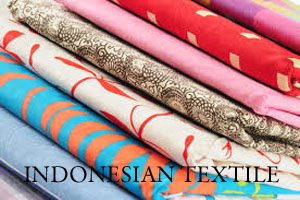FW
To combat farmers' suicides in the cotton-growing belt, Maharashtra government plans to expand the textile hub policy to nine districts across the state. After the huge unrest among farmers in drought-hit regions of Vidarbha, Marathwada and some of northern parts of the state, the state government decided to accord the textile industry the second most important status after agriculture. Thus, Yavatmal, Buldhana, Amravati, Jalna, Parbhani, Nanded, Aurangabad, Beed, and Jalgaon are the districts short-listed, where textile hubs would be developed.
Amravati too would see the launch of a textile park on 100 acres land. The aim is to create a textile township, which would have provisions for multiple activities—from processing to marketing within the hub. The projects will be undertaken via public and private partnership.
Chief Minister Devendra Fadnavis, has urged speeding up of the projects. The Maharashtra State Textile Corporation and Maharashtra Industrial Development Corporation, is expected to coordinate. Besides, he has urged that the authorities streamline details such as water, land, power supply, etc., which are integral for the textile hubs. Fadnavis believes the textile sector lacks proper planning and feels that it is pointless to have a spinning mill in distant western Maharashtra where cotton transport from Vidarbha incurs massive expenditure. Instead, it may be wise for spinning and processing units in areas where cotton is grown this would benefit both, farmers and industrial units.


The continents economy would do well and in turn be able to support garment manufacturing. Consequently, workers would demand higher wages for low-margins, hypercompetitive garment factories. Following this, they would acquire high-wage jobs, the factories would shift to a lower-wage locale and as per Ricardo’s theory of comparative advantage, everyone would enjoy a higher income.
Effects of Ricardo’s theory
The effects of Ricardo’s theory of comparative advantage were experienced by everyone over the past few decades when economies moved up the value chain. One case in point is the ‘Made in Japan’ joke that was so common in the US, as Japan produced cheap products. The joke fell through as the Japanese leveraged their production to dominate global market and started competing with America. Japan outsourced it’s low-skill jobs to neighbouring countries such as China and South Korea.
Usually, one looks at work going to Bangladesh or Vietnam, but not Africa. However, all that is changing now as noted by The Wall Street Journal in its columns as a McKinsey & Co report suggests Ethiopia was identified as a top sourcing country by apparel companies. The Journal states that a garment worker in China earns approximately $150 to $300 a month, whereas in Ethiopia, the same worker earns only $21. These kind of wage differences are attractive.
Overcoming impediments
Yet, there are many hurdles that need to be overcome as African manufacturing is at present a blip on the radar compared to China. It will be a long time before a major upheaval takes place. After all catch-up growth takes a while to take off. There are many hurdles on its growth its path, such as lack of basic infrastructure. Then, there is armed conflict and corruption, to overcome. Many Asian countries though, have grown rapidly without strict measures of corruption control. Economically, what’s more important is that destinations provide reliable electric power and a convenient location for the container ship to dock.
Finally, the million-dollar question is whether manufacturing jobs should be taken to Africa by profit-seeking companies, where such low wages are offered. An unequivocal answer would be a ‘yes’ as the perception is that moving jobs to anywhere in Africa is beneficial for their impoverished population.
A $21-a-month manufacturing job is certainly an improvement, but there are alternatives too, such as raising the garments factory workers’ initial wages. However, such measures mean adding cost to employing workers there. Manufacturers would look at Africa as an option, only if the wage difference was high compared to other countries.
An improvement for African workers may act as a step towards bigger improvements. As the economy strengthens, garment factories would move from country to country, until every country has become industrialised to the point where nobody anywhere is working for $21 a month. Such jobs provide an above-average standard of living. The more Africa’s economy grows, the more the rise in people’s wages. This would be possible if Africa achieves the same level of growth as Asia has done in the past 70 years.
Shahi Exports has launched a new apparel manufacturing unit in Odisha, which would be developed at an investment of Rs 36 crores. The apparel unit, with a capacity of three lakh dresses per month, is expected to provide direct employment for about 2,500 people. The company has 48 production units in the country with employing around one lakh people.
The construction work of the proposed unit would be completed within one year and is being set up at an industrial estate in Mancheswar. The foundation stone for the proposed unit was laid by Chief Minister Naveen Patnaik. “The state government has been giving stress on textile industries as it generates more employment. The state has been contemplating to set up two integrated textile parks at Choudwar and Bhadrak,” said Patnaik after laying the foundation stone of the new unit.
He further added that after Shahi Export’s export oriented manufacturing unit in the state, other textile and apparel majors may consider investing in the state. He also said that the state’s new industrial policy would have provisions to encourage investments in the textiles and handlooms sectors. www.shahi.co.in
Far East Knitting and Dyeing Industries is a leading composite textile company in Bangladesh, with integrated, knitting, high end dyeing, finishing (tubular and open width), and state of the art printing, pigment dyeing and garment washing. The company supplies finished goods to renowned apparel brands Walmart, Primark, New Look and Bershka. Its major products are knitwear such as T-shirts, tank tops and vests and jackets.
The production capacity of finished garments is approximately 1.5 million pieces per month in basic T-shirts. Far East Knitting has floated 25 million ordinary shares. Of the total shares, sponsors or directors owned most of the shares, 78.45 per cent, the public held 19.39 per cent while institutions owned only 2.15 per cent shares. The company is now planning to expand and increase production capacity of finished garments by approximately one million pieces per month in basic T-shirts.
Far East expects its exports will double after completion of the new project. The project is expected to be completed by March 2016. The company has 1,400 sewing machines. The machinery include a variety of automatic and manual machines (plane, overlock, flat-bed, cylinder bed, two needle etc.) The daily sewing capacity on an average is 50,000 to 60,000 pieces a day for basic items and about 45,000 pieces a day for more sophisticated garments.
www.fareastknit.com/
India is the second largest producer of cotton, cotton yarn, cotton fabric and silk after China and far ahead of Bangladesh and Vietnam.
The country leads the world in jute production accounting for 52.3 per cent of the total production followed by Bangladesh with 42.5 per cent.
India’s readymade garment exports amounted to 42.85 per cent of the total exports vis-a-vis 94.2 per cent for Bangladesh, 80.63 per cent for Vietnam and 60.31 per cent for China.
The country has as many as 72 textile parks in various stages of implementation. Once operational, the textile parks will attract investments to the tune of Rs 30,000 crores and generate employment to nearly 4.5 lakh people.
The Scheme for Integrated Textile Parks was launched in 2005 to provide the textile industry with state-of-the-art infrastructure facilities for setting up their textile units.
India’s textile sector contributes 11 per cent to the country’s total export basket. The field is extremely varied, with a handspun and hand woven sector at one end of the spectrum and a capital intensive sophisticated mill sector at the other.
The industry has the capacity to produce a variety of products suitable to different market segments, both within and outside the country.
Garment units of Bangladesh want to set up warehouses and sales centers in Gujarat. India has responded positively to the investment proposal. This will enable Bangladeshi garment makers to sell and distribute their products directly in India. They see India as a large marketplace with a growing middle class customer base.
A five-member business delegation is set to visit India. During the three-day tour from August 23 to 25, members of the delegation will visit industrial plots and meet the state chief minister. The plan is to set up warehouses in 50 acres of land in Gujarat and to set up a thousand sales centers across India. Since India has permitted well-known brands to do business in its marketplace, Bangladesh’s garment makers feel having warehouses in Gujarat will allow them to provide items of clothing to these brands. Bangladesh wants to enhance its yearly item of clothing exports to the Indian market to a billion dollars in three years from around a100 million dollars now.
India presents duty-free and quota-free market entry for all Bangladeshi products, excluding alcohol and drugs. However, Bangladesh’s garment makers want India’s countervailing duty removed so that they can export more.
Amity School of Fashion Technology (ASFT) organised an industry interaction to welcome the students of 2015 batch. As a part of industry interaction, a large number of expert speakers from reputed fashion retail/brand companies, apparel export organisations as well as fashion communication & fashion designing experts visited the campus to address the new batch of under graduate and post graduate students. The topic covered was: ‘Expectations of the Fashion Industry from Young Professionals’.
The distinguished speakers included Roopak Vasishtha, CEO and Managing Director, Apparel Made-Ups & Home Furnishing Sector Skill Council; Ashvinder Singh, Managing Director, Uni Style Image; Ashok Raman, Vice President- Marketing, Shahi Exports; Stuti Jalan, MD, Crosshairs Communication; Shalini Ahuja, Accessory Designer, Shalini Arts and Nida Mahmood, Fashion Designer.
Pradeep Joshi, Director General, Amity Directorate of Applied Arts, Fine Arts, Performing Arts & Visual Arts welcomed the experts and requested industry veterans to guide the students by sharing their invaluable experiences. He also emphasised the need for greater industry-academic partnership thereby asking for continuous support and guidance from industry.
The drive to maintain set standards of safety for workers in readymade garment (RMG) factories, undertaken by International Labour Organisation (ILO) and the government in the aftermath of Rana Plaza building collapse, will continue for another three months. More than 300 units are yet to be inspected. The safety campaign, which was started in February, last year, had December 2014 as its deadline, which due to incompletion of task was extended to July 31. Again in the light of the same problem, it was extended to another three months.
Shedding light on the matter, Bangladesh labour secretary Mikail Shiper said, the deadline extension has been due to factory-owners’ demand for more time to complete fire, electricity and other safety parameters. They have time now until October 31 to get the work done at their premises.
He also stated that they had shortlisted 13 engineering firms for the purpose of assessment, and seeing that only two were in the job of inspection now, they have allowed factory owners to choose any listed firm on their own for this purpose. Questions were being raised by factory owners over the activities of field resource, wherein field resources people alleged to have been involved in provoking workers outside of the factories.
Far East Knitting and Dyeing Industries is a leading composite textile company in Bangladesh, with integrated, knitting, high end dyeing, finishing (tubular and open width), and state of the art printing, pigment dyeing and garment washing. The company supplies finished goods to renowned apparel brands Walmart, Primark, New Look and Bershka. Its major products are knitwear such as T-shirts, tank tops and vests and jackets.
The production capacity of finished garments is approximately 1.5 million pieces per month in basic T-shirts. Far East Knitting has floated 25 million ordinary shares. Of the total shares, sponsors or directors owned most of the shares, 78.45 per cent, the public held 19.39 per cent while institutions owned only 2.15 per cent shares. The company is now planning to expand and increase production capacity of finished garments by approximately one million pieces per month in basic T-shirts.
Far East expects its exports will double after completion of the new project. The project is expected to be completed by March 2016. The company has 1,400 sewing machines. The machinery include a variety of automatic and manual machines (plane, overlock, flat-bed, cylinder bed, two needle etc.) The daily sewing capacity on an average is 50,000 to 60,000 pieces a day for basic items and about 45,000 pieces a day for more sophisticated garments.
www.fareastknit.com/

Indonesia's garment and textiles industry has seen good sales growth as consumers loosen their purse strings. Moreover, the country is doing well, partly due to weaker rupiah. However, the sector is facing major challenges amidst rising competition in the ASEAN region. Indonesia needs to strengthen capital, technology and know-how, to help meet quality and quantity of goods in the growing apparel industry. This is a challenge to attain and also an opportunity for investors.

Upstream investment in Indonesia’s textile industry is because of the healthy downstream business as garment manufacturers capitalise on rising domestic and foreign demand. Indonesian government is set to increase the value of exported textiles and garments to $75 billion by 2030, contributing 5 per cent to global exports.
Upstream business hurdles
Indonesia leads in textile manufacturing due to strong upstream and downstream business. Major local garment makers want to take advantage of this and have also upped their capital to acquire assets, which would help them streamline their supply chains. The upstream side though, has been struggling to keep up. As per Indonesian Synthetic Fiber Producers Association (APSyFI), imports of fibre doubled to around 600,000 tonnes from 300,000 in 2008. As downstream businesses keep sourcing their input materials from abroad, the domestic upstream industry has been failing to benefit from rising consumer expenditure.
The output of upstream textile products has grown through the years, but costs have gone up faster, thus straining businesses. The imperfect condition of upstream business also reflects in the industrial production index for the textile industry. This has been declining since 2010, which is in contrast to most other industries. Large and medium-sized textile businesses have declined in numbers. Trade data shows that the country’s upstream business is increasingly becoming dependent on imports, while exports grew only moderately over the past five years.
Imports of both yarn and fabrics have increased and in manmade fibre products, imports of yarn and woven fabric have outpaced exports over the past five years. Also, the imports of manmade filaments and staple fibres have grown rapidly, as the garment industry demand increased. Thus, Indonesia's upstream textile industry is struggling to ward off foreign competition.
Factors affecting upstream business
Lack of competitiveness in Indonesia’s textile industry can be put down to several factors. The use of inefficient technology, underdeveloped transportation system, power infrastructure and rising energy costs are some of them. Labour, of course, is the garment producers’ biggest worry, but not as much for the capital intensive upstream business. Indonesia also falls behind in higher-value products where local producers are concerned.
Government incentives to help textile companies have been insufficient so far and even government-sponsored training programmes and industry clusters aimed at generating local know-how and fostering integration are not that successful. Besides, the upstream business lacks competitiveness. So, since government measure so hardly effect, hopes are pinned on the private sector and foreign investors. Exporters of spinning and weaving machinery, consulting and staff-training too have an opportunity here.












